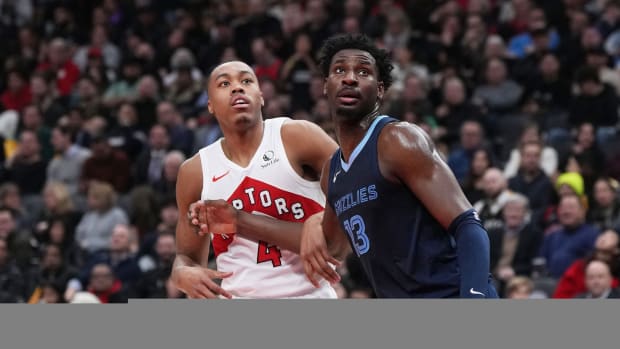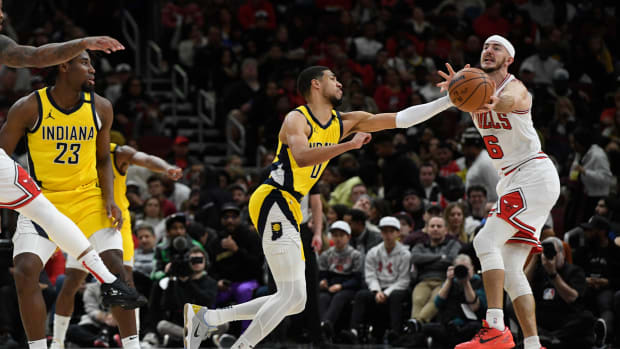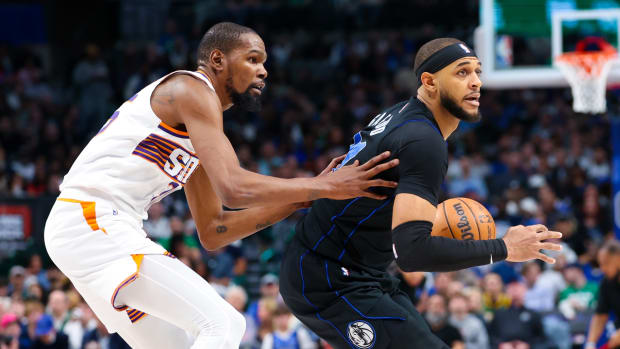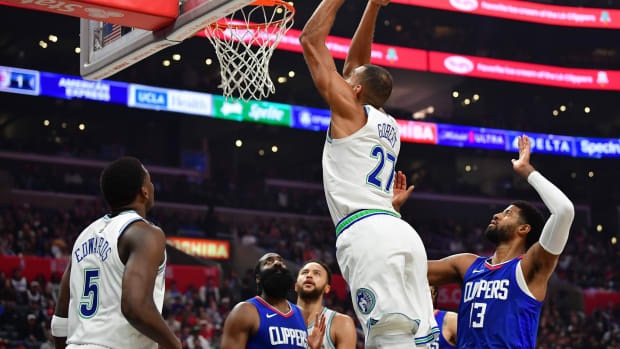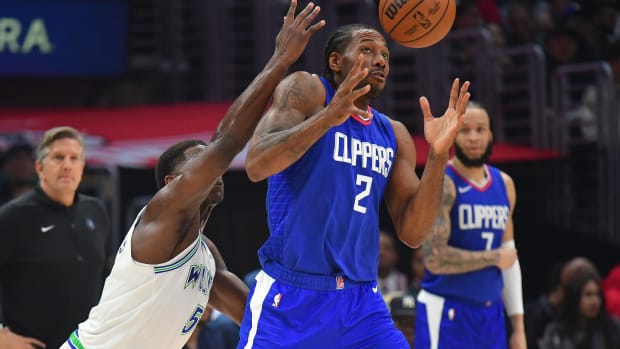Danny Ainge Is ‘Pleasantly Surprised’ By Jazz’s Hot Start
The Jazz are 10–3 and at the top of the Western Conference.
And Danny Ainge must be pissed.
Has to be, right? This roster—which Ainge, Utah’s CEO, and Justin Zanik, the Jazz GM, stripped down last summer—wasn’t built to win. It was built to lose. A lot. Utah isn’t supposed to be thinking about the playoffs. It’s supposed to be thinking of ping pong balls.
So what does Ainge think of the Jazz’s success?
“Pleasantly surprised,” Ainge said in a telephone interview.
And, theoretically, why wouldn’t he be? Lauri Markkanen is playing like an All-Star. Collin Sexton, who missed most of last season, is contributing in a key role off the bench. The Jazz have a top-10 offense and defense. They have two wins over Memphis, one over Denver and kicked off a three-game road trip with a win over Atlanta on Wednesday night. Last weekend they went to Los Angeles and clobbered the Lakers and Clippers.
Ainge shouldn’t be happy. He should be ecstatic.
But this is Utah. The Jazz, realizing that the Donovan Mitchell/Rudy Gobert core wasn’t going to get them any deeper than the second round of the playoffs, pulled the plug on it last summer. They made trades that sent veteran, proven talent out and brought younger, more inexperienced players (plus a whole boatload of draft picks) back in.
Winning games, seemingly, was no longer the priority.
Being in position to draft Victor Wembanyama was.
So is Ainge bothered by the fact they are suddenly winning?
“I mean, come on,” Ainge says. “Who would say that? And who would I ever have told that to? Just think about that for a second.”
Well, there’s some version of an angry Ainge meme on social media after every win, I say.
“I’m not commenting on other people’s comments,” says Ainge. “It’s assumed that’s how I feel? Give me a break. I’ve been accused of [building teams to lose] before. It’s never been true.”
Ainge says he’s happy with Utah’s winning ways. He praised the team's veteran leadership and the maturity of its young players. He acknowledged Will Hardy—his handpicked, first-year head coach—for having the team ready to play. He pointed to the team's assist numbers—the Jazz are averaging 27.7 assists per game, sixth in the NBA—as evidence of unselfishness. He is impressed with how this team has come together in such a short period of time.
“Not that each individual couldn't play well,” Ainge says. “I like a lot of the players on our team. But the fact that they've jelled so well so early is fun. There is a lot of movement and a lot of guys moving the ball. That's a fun way to play. And I think they're all enjoying it very much.”
Still, the Jazz are in the early stages of a rebuild. They offloaded two established All-Stars last summer without getting one back in return. They own 14 first-round picks through 2027—and may not be done stockpiling them. Conventional wisdom suggests that Utah’s pricey veterans, including Mike Conley, Jordan Clarkson and Kelly Olynyk, will be available the next few months. Conley is a 40-plus percent three-point shooter with playoff experience. Clarkson, two years removed from winning the Sixth Man of the Year award, is shooting a career-best 41.2% from three. Olynyk is a versatile, floor-spacing big. The market for each could be strong.
Ainge wouldn’t delve into any specific plans. “We're in the process of trying to build a team for the now and for the future,” Ainge says. “We're just going to be opportunistic.” He knows how to build a title winner. He assembled the Celtics’ roster that won a championship in 2008 and put together most of the pieces from Boston’s Finals team last season. But Ainge did volunteer that he has noticed the connection this team has forged with the fan base. He noted the energy in Vivint Arena every night. It’s likely Ainge, as dispassionate an executive as there is in the NBA, will move anyone on the roster. But he won’t do it unless other teams meet his exact price.
For now, Ainge says, he will enjoy the process. He says everyone in the Jazz’s front office—from Ainge to Zanik to owner Ryan Smith—remains on the same page. He doesn’t know if Utah’s early season success is sustainable. “We’ll see,” Ainge says. But he also wouldn’t rule out looking to bring in talent before the February trade deadline. “I wouldn’t discount anything,” he says. “We have a lot of opportunities to make deals with all the picks that we have.”
The Utah Jazz as buyers before the trade deadline?
Now who would have believed that was even a possibility?
More NBA Coverage:































